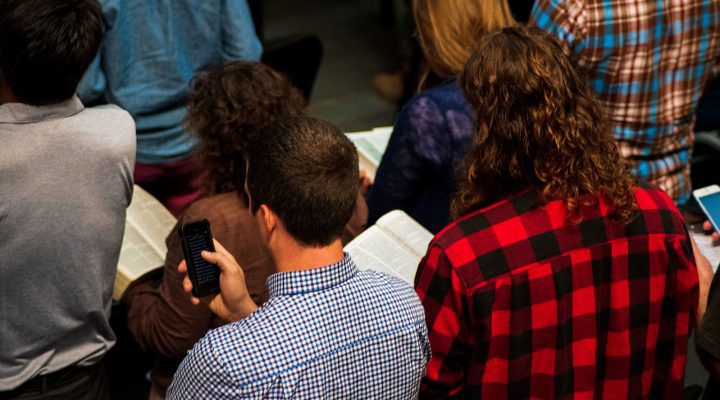The growing complexity and pervasiveness of digital devices and social media is diminishing our capacity to relate authentically to others and to God, author and cultural sociologist Felicia Wu Song said.

Felicia Wu Song
“Research is showing (that technology) is creating an inability to actually attend to people and a lower level of empathy with people when we’re actually talking to them,” Song, a sociology professor at Westmont College in California, said during a recent podcast episode titled “How Tech Impacts Faith, Society and Personhood,” hosted by the National Association of Evangelicals.
“It is transforming even the times when we are talking to each other and, I would argue, it is shaping and distorting our relationships and our identities within communities,” said Song, an expert on technology’s effect on human beings and author of Restless Devices: Recovering Personhood, Presence and Place in the Digital Age.
Podcast moderator and NAE President Walter Kim asked if the constant sending and reading of text messages and checking of email and social media sites seems to be blunting the faith of tech users. She responded by describing constant tech usage as spiritually formative, but in a negative way.
“All those habits, arguably, are discipling us away from the kingdom of God, discipling us away from following after Jesus,” Song said. “For people of faith, our digital habits are training us and teaching us certain things about how to respond to hard times and things that are uncomfortable.”
“Our digital habits are training us and teaching us certain things about how to respond to hard times and things that are uncomfortable.”
Song added she is not an opponent of digital technology because smartphones and social media can help create community. “It has so much potential to bring people together, to help people express themselves authentically, to bring together people that are geographically in very different places and historically haven’t been able to talk to each other. It’s incredible.”
But the challenge lies in the way people use their devices, she said. “We aren’t just using technology in a way where I connect with you and then I turn it all off. No, no, no. We are living in a landscape, in an ecology or an environment, that is completely enmeshed and infused with digital communications and information because of all the notifications and different streams coming from work, family, friends and church community.”
As a result, users live in a state of permanent connectivity and preoccupation with devices whether or not they are in active use. That in turn diminishes the ability, time and desire to be fully present with others, Song said.
Kim said that scenario sounds all too familiar. “Imagine you’re going through your day and you have sent a text off, or you posted something on Instagram, and then you put your phone down. But did you really put your phone down because you know it’s still in the back of your mind?”
The effect on human relationships is clear, he said. “We are less able to connect with other people because we’re less present with each other. We might be sitting across from each other having a lovely moment in which we both have our phones down, but our phones are not down, mentally.”
Song added that research has found brain functions devoted to reflection are being blocked by the preoccupation with technology: “When we are constantly on our phones, when we’re constantly being stimulated by Netflix or reading the news, that part of our brain is not activating or even getting a chance to blossom and grow.”
She was circumspect when Kim asked if the developing minds of young people suffer at greater levels from these trends.
“There are still a lot of questions about what is happening to young people’s brains as they are growing up in a world of screens, of social media apps and in a world in which what it means to be a friend, what it means to have relationship with someone, might mean being on a group chat or being on Snapchat,” she said. “That said, one of the things I feel quite strongly about is that I don’t think of technology as a young person’s problem.”
“I don’t think of technology as a young person’s problem.”
Song said she urges people to find spiritual ways to counter the dominance of screen time in their lives, including by starting each day with time free of texts, emails or news reports. “Just breathe for 15 minutes before letting it all come in, and see that as sacred and as a time when God is already present. And depending on where we’re at, maybe we read Scripture, maybe we pray, maybe we journal.”
It also helps to find sacred spaces where quiet and solitude can be experienced free of the demands and noise of digital media, she said.
Churches could be especially helpful in creating sacred time and space for people overwhelmed by devices and social media, Song added. “This is actually the time for the church because Christian heritage and theology are filled with resources for people who are tired and exhausted and feel stuck with this life that our society is handing to us and our kids.”


